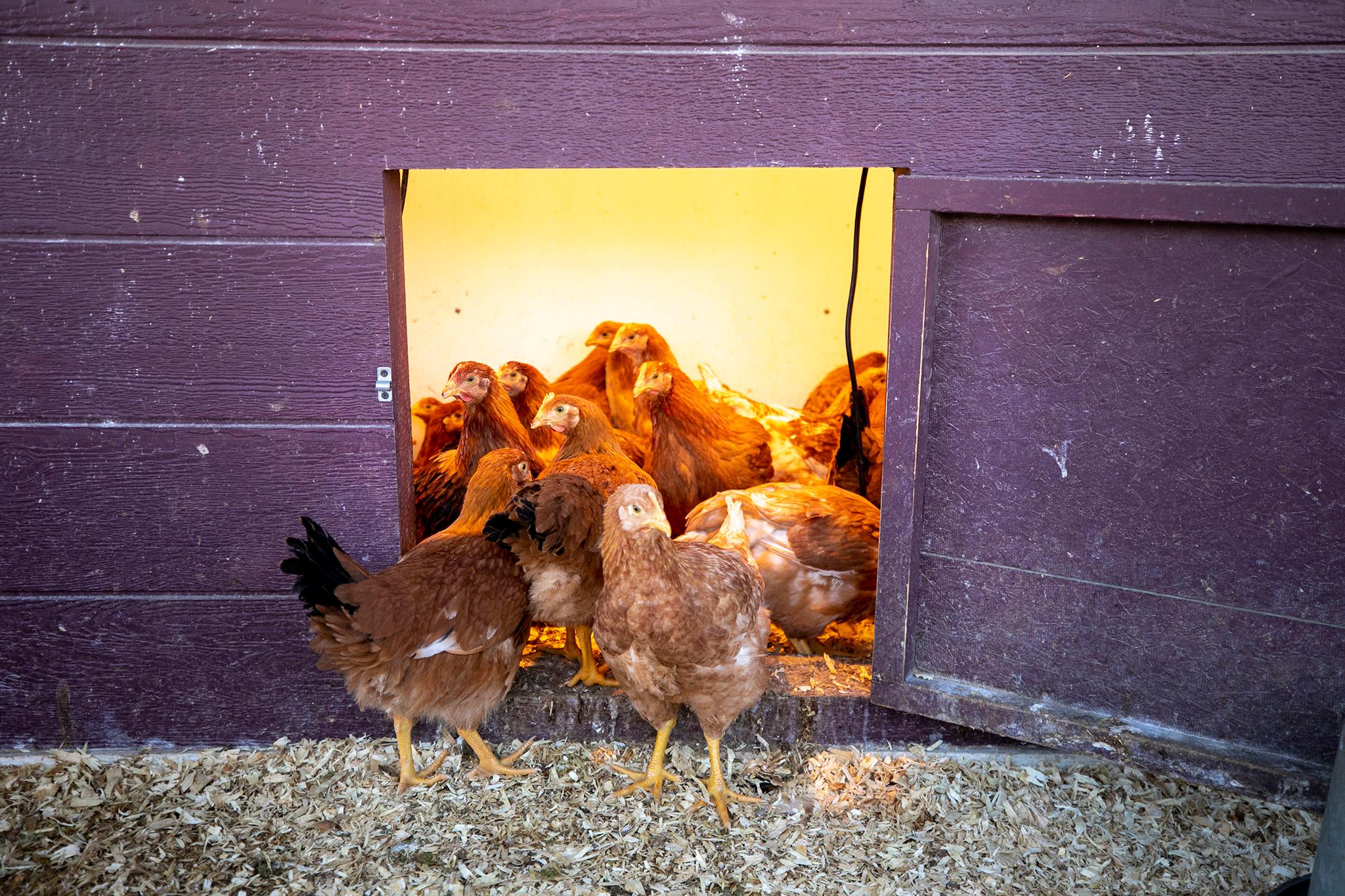
Updated 10:09 p.m., July 14, 2024: On Sunday, health officials updated the number of poultry workers infected with avian flu to five. The workers were culling birds at an egg laying operation in Weld County where an outbreak was detected last week.
The original story continues below.
The state health department said late Friday afternoon that three new likely human cases of virus infection from avian flu have been identified. The highly pathogenic avian influenza is also called “H5 bird flu.” The cases are in three poultry workers.
Earlier this month, the Colorado Department of Public Health and Environment (CDPHE) announced the state’s first human case of avian influenza H5 infection this year, from a dairy cow, as the virus had put more than two dozen dairy cattle herds under quarantine due to the virus.
The agency said the risk to the public remained low and that all three workers had direct contact with infected animals.
CDPHE said that, in coordination with the Colorado Department of Agriculture and State Emergency Operations Center, state officials had identified three presumptive — meaning presumed to be — positive cases of avian influenza in workers at a commercial egg layer operation, according to a release.
“The workers were culling poultry at a farm in northeast Colorado and exhibited mild symptoms, including conjunctivitis (pink eye) and common respiratory infection symptoms. None of the individuals were hospitalized,” the release said.
The agency’s lab has sent specimens to the Centers for Disease Control and Prevention for “confirmatory testing.”
Additional samples were collected from symptomatic workers, which will be tested this weekend. The agency, which is getting help from the CDC, said state epidemiologists suspect the cases are a result of working directly with infected poultry.
The CDC also issued a press release noting the preliminary test results “underscore the risk of exposure to infected animals.” It noted that there are no signs of “unexpected increases in flu activity otherwise in Colorado,” or in other states affected by H5 bird flu outbreaks in cows and poultry.
Still, the agency noted the broader risk.
“Human infections with this novel influenza virus (and others) are concerning because of the potential to cause severe disease,” the CDC’s release stated. It also noted these types of human infections cause concern “because of their pandemic potential. If these viruses were to change to spread easily from person-to-person, it could trigger a pandemic.”
“The presence of conjunctivitis (pink eye) is consistent with the four previous cases of avian flu this year in the U.S.,” said Dr. John Swartzberg, a clinical professor emeritus and expert in infectious diseases, at UC Berkeley.
“These individuals apparently had other respiratory symptoms,” he said via email. “It's disturbing but not surprising that this virus presumptively is spreading to more humans. People who work closely with infected animals are at risk for becoming ill.”
“We have not seen evidence of human-to-human transmission,” he stressed. “If we do, I would be much more concerned.”
Other Colorado cases
The announcement of the three human cases comes after Governor Jared Polis declared a disaster emergency earlier this week following an outbreak of avian flu at a large commercial egg operation in Weld County on July 5.
The protocol from the federal government in case of avian flu requires all birds in a flock be put down humanely if a single case of the highly contagious virus is detected in the flock. In this week’s outbreak, nearly two million chickens at the Weld County farm had to be killed to stop further spread of the virus. It is unclear if the workers that likely contracted avian flu got the virus from the same egg operation.
The outbreak was the first at a Colorado commercial facility since February and only the second since December 2022. Avian flu detections among commercial and backyard poultry flocks in recent years have been relatively low; that’s thought to be because farmers have adopted strict biosecurity measures.
This week’s poultry-related news comes as H5 bird flu cases in Colorado dairy cows keep rising. For several weeks, the numbers from a federal website record the state as having more cases than any other.
Colorado is now reporting more cases in cattle than any other state by far, according to the U.S. Department of Agriculture website, with 30 livestock herds affected during the last 30 days. Iowa recorded 11 herds affected, while four other states recorded less than 10. It’s not clear from the federal government how many other states are testing and reporting cases.
The state health department said earlier this month that all confirmed cases in dairy cattle have been reported in northeast Colorado. According to the agency earlier this month, about a quarter of the state’s dairies had confirmed cases, now the share has risen even more. Colorado has 105 licensed dairy facilities, 35 of which have been affected by the avian flu outbreak, with four being released from quarantine as of Friday, according to a Colorado Department of Agriculture website.
What workers who suspect they have avian flu should do
CDPHE says it is safe to eat poultry products when they are properly handled and cooked. Proper handling and cooking of poultry, as well as meat, and eggs kills bacteria and viruses. That includes avian flu viruses, according to the release.
Those who work with dairy cows or poultry who suspect they could have avian flu and begin feeling sick, are advised to seek medical care or call CDPHE at 303-692-2700 (after normal business hours: 303-370-9395).
The agency can help you get a flu test and medicine if needed. More information about avian flu in humans is available at cdphe.colorado.gov/animal-related-diseases/hpai-h5n1.









